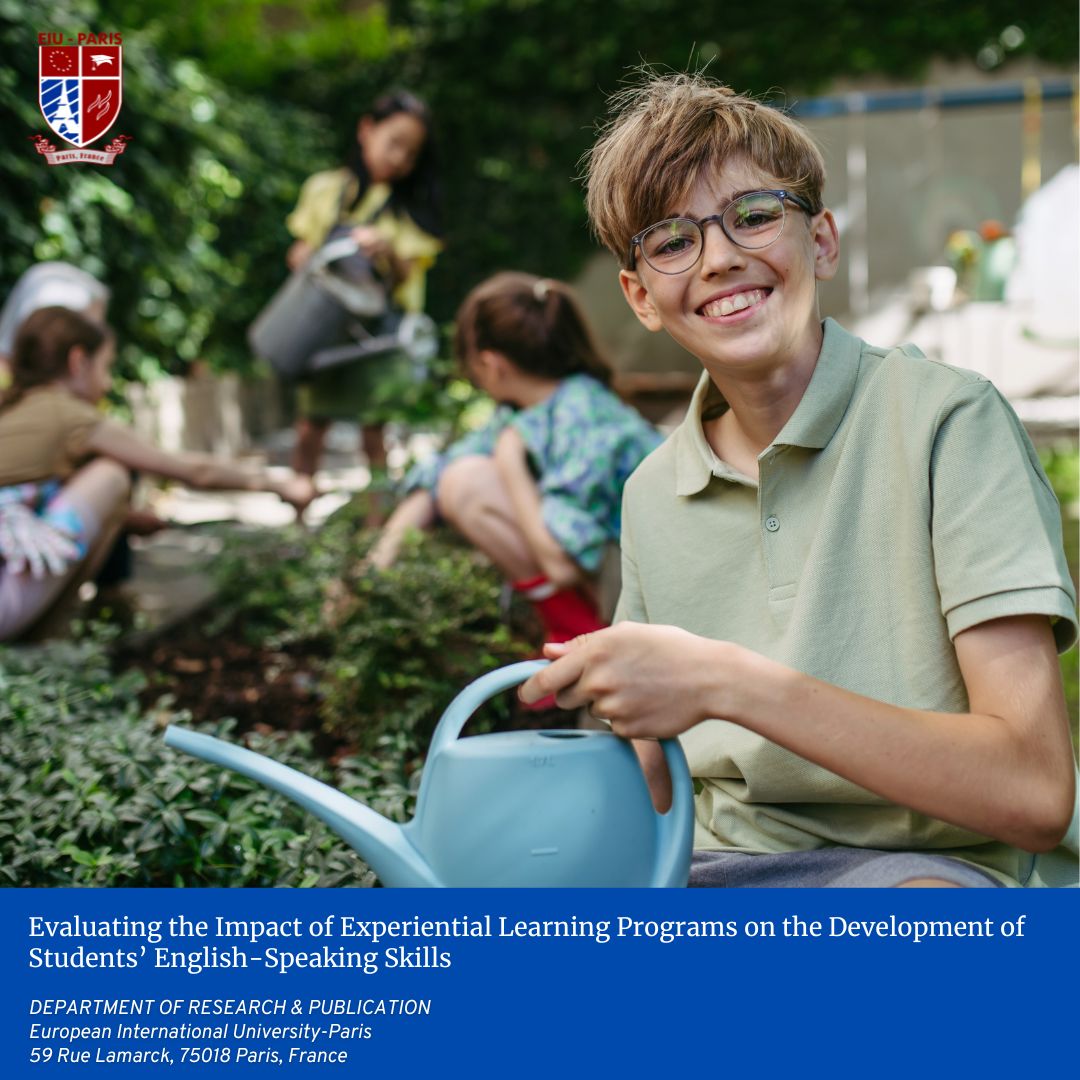- Version
- Download 18
- File Size 1.43 MB
- File Count 1
- Create Date November 11, 2024
- Last Updated November 11, 2024
Evaluating the Impact of Experiential Learning Programs on the Development of Students’ English-Speaking Skills
This descriptive research paper comprehensively explores the impact of experiential learning programs on students' English-speaking skills. Utilizing a quantitative research approach, a cross-sectional survey of 100 educational professionals assessed the efficacy of experiential learning in enhancing speaking skills and reducing oral communication apprehensions. The data analyzed via the one-sample t-test rejected the null hypothesis that experiential learning programs have no significant impact on developing English-speaking skills. Descriptive statistics such as mean, standard deviation, frequency distribution, and inferential statistics such as one sample t-test have been employed to determine the findings and answer the research question: How does participation in experiential learning programs impact the development of students’ English-speaking skills? Approximately 90% of educational professionals supported the effectiveness of these programs. The article aims to improve students' speaking abilities and learning experiences by providing insights for educators and policymakers worldwide. The study suggests integrating an experiential learning approach in the curriculum of communication education classes and schools for students’ academic and personal growth. With an emphasis on interactive learning experience, the study material has been presented in a speech-style structure with thought-provoking reflection questions supported by visual aids and the PAM method (Phrases, Analogy, and Metaphors).

Submitted by: Purvi Gupta EIU262060 In Partial fulfillment of the Requirements for the Degree of Professional Doctorate in Education Administration and Leadership Supervisor: Dr Aditi Ghosh Date: 05 April, 2024 EIU - PARIS

